Iodine is a crucial mineral for everyone’s health. It regulates thyroid function, which prevents weight gain, fatigue, dry skin, hair loss, and even cognitive impairment.
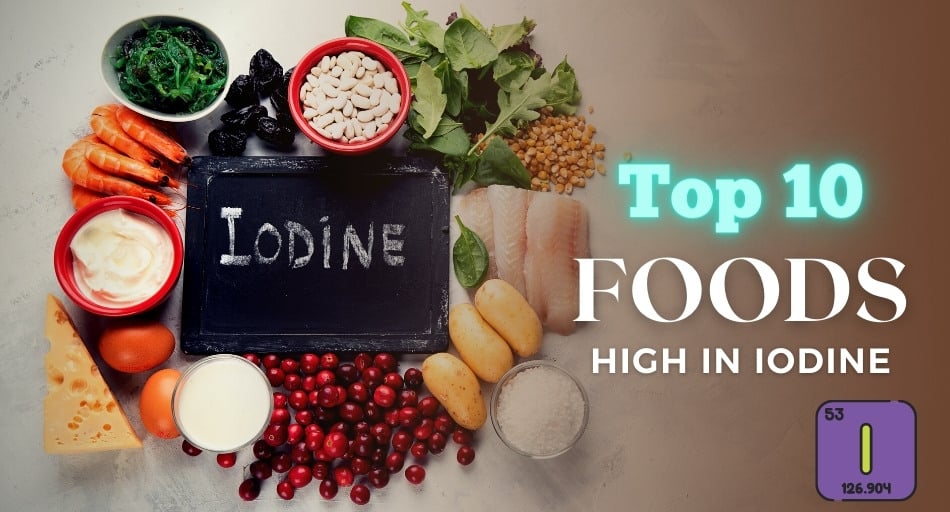
Unfortunately, while iodine deficiency is rare, it still does happen. Because of that, it’s important to know which foods are high in this mineral to avoid any health complications.
Luckily, there are many natural food sources of iodine, so you don’t have to reach for supplements.
Iodine is naturally present in various foods from different food groups. People should get around 140 micrograms of iodine each day.
Most common iodine-rich foods include seafood and fish, but there are other options if you follow a vegetarian or vegan diet. Whatever your dietary plan is, though, make sure to include some of these high in iodine foods in your meals to stay as healthy as possible and prevent iodine deficiency.
Table of Contents
Foods High In Iodine
1. Eggs
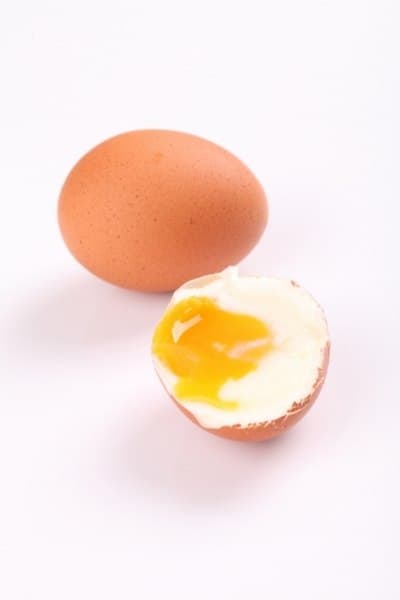
One egg provides you with 25 micrograms of iodine. Aside from providing you with a great dose of iodine, eggs are high in protein, which is a crucial macronutrient.
Eggs also contain a lot of riboflavin, selenium, phosphorus, contributing to good health and disease prevention.
In addition, eating eggs can help you stay fuller for longer, which can make losing weight a much easier process as well.
2. Oysters
A serving of six oysters contains 144 micrograms of iodine. Oysters are not only high in iodine but also protein and healthy fats.
They also provided you with a lot of micronutrients, including iron, magnesium, zinc, copper, and selenium. In fact, they contain almost all vitamins and minerals in great amounts, making them incredibly nutritious.
What’s more, oysters are rather low in calories, so they can be a great addition to a diet aimed at weight loss.
3. Greek Yogurt
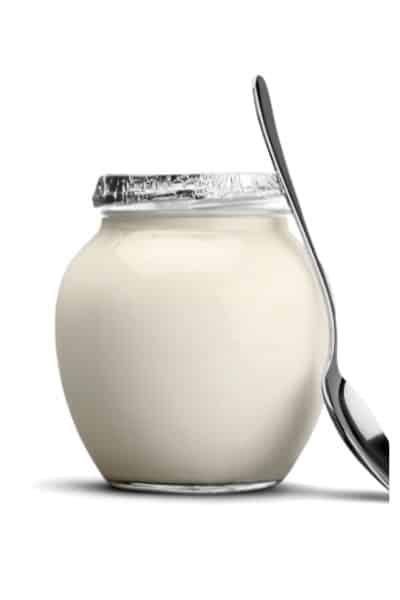
A 150g-serving of Greek yogurt contains anywhere between 50-100 micrograms of iodine. Most dairy products contain decent amounts of iodine, so make sure to add them to your diet.
Greek yogurt contains a great dose of protein and healthy fats as well as riboflavin, vitamin B12, calcium, and phosphorus.
Because of these vitamins and minerals, eating Greek yogurt can boost your immune system and keep your bones healthy, preventing osteoporosis and other bone-related issues.
4. Cod
One fillet of cod provides you with 230 micrograms of iodine, which means that eating this white fish is a great way to up your intake of this mineral.
Cod is also very nutritious, providing you with 41% of your daily need for protein in a single serving. It also contains several B vitamins as well as phosphorus, potassium, and selenium.
This type of fish is low in calories, so many experts recommend it for a weight loss-friendly diet.
5. Seaweed
A single small serving of seaweed can contain over 300 micrograms of iodine, making this food one of the best sources of this mineral.
Seaweed is low in calories but high in iron, folate, magnesium, and manganese. It’s often served as part of sushi as well as in other dishes and meals.
It’s very versatile and easy to incorporate into any diet, especially if you’re following a vegetarian or vegan diet.
6. Shrimp

A 3-ounce serving of shrimp contains 35 micrograms of iodine. Just like beef liver, shrimp contains very few calories but lots of protein and important nutrients.
Shrimp is also high in antioxidants that help flush out harmful free radicals from your body, reducing your risk of various chronic conditions, including heart disease, cancer, and diabetes.
What’s more, this food is also a great source of selenium, which is a mineral that helps prevent mental decline.
7. Beef Liver
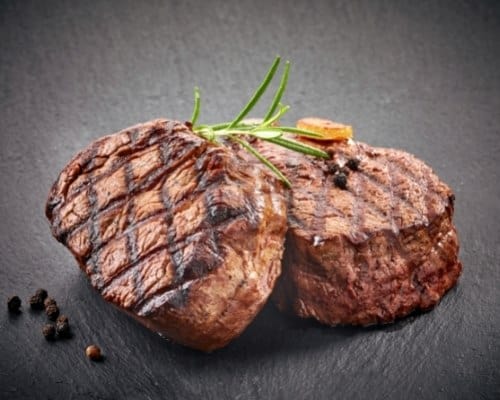
A 3-ounce serving of beef liver contains 14 micrograms of iodine. Beef liver is not only iodine-rich but also highly nutritious.
For example, it provides you with lots of protein, vitamin A, vitamin B12, riboflavin, and iron. It’s also not too high in calories, which means that it’s a very healthy food considering the nutrients it provides you with.
Beef liver is very easy to prepare and cook, so if you’re looking for a straightforward way to add more iodine to your diet, this might be your best choice.
8. Tuna
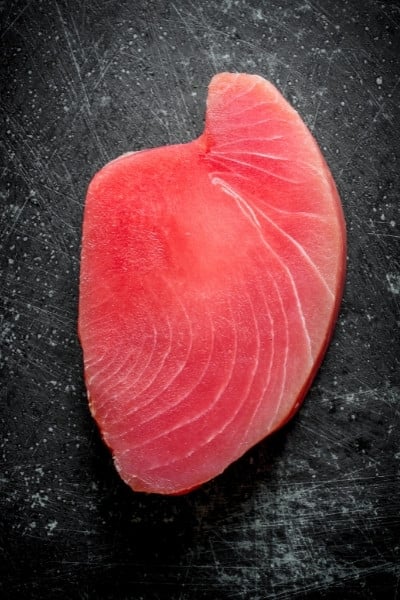
100 g of canned tuna contains 12 micrograms of iodine. Low in calories, cooked and canned tuna is high in protein, niacin, and selenium, all while contributing to the feeling of fullness after eating.
Because of all the nutrients it contains, tuna may also help strengthen your immune system and protect your body against viruses and bacteria.
In addition, tuna is widely available in all stores, so eating it is an easy way to prevent vitamin and mineral deficiencies.
9. Prunes

Just five dried prunes provide you with around 13 micrograms of iodine. Prunes contain a lot of fiber, which helps soak up excess stomach acid, reducing your risk of heartburn and other acid reflux symptoms.
What’s more, prunes contain a lot of vitamin K, which is crucial for blood clotting and bone metabolism.
They also make for a great source of potassium, which reduces your risk of high blood pressure and strokes, all while keeping your cardiovascular system healthy and strong.
10. Iodized Salt
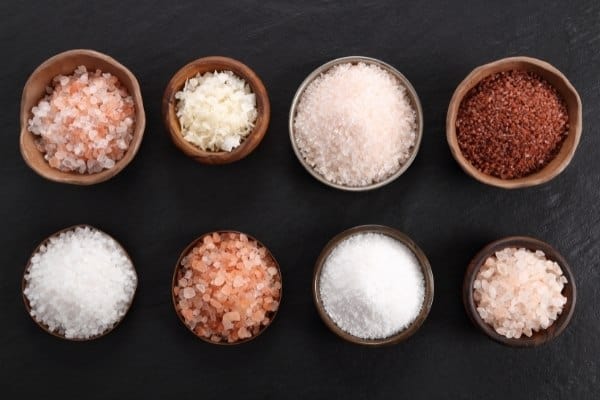
Juts ¼ teaspoon of iodized salt contains 71 micrograms of iodine, which corresponds to 47% of your daily recommended intake of this mineral.
While it’s a great amount, keep in mind that it’s still salt, which means that it contains a large amount of sodium.
Consuming too much of this mineral can raise your blood pressure, increasing your risk of strokes and heart attacks. Because of that, make sure to limit your consumption of salt, even if it’s iodized.
Conclusion
There are many natural sources of iodine, so it’s important to include them in your diet.
Getting enough iodine from your diet is crucial to staying healthy and preventing many health conditions.
So, since these iodine-rich foods are very easy to incorporate into all diets, make sure to put them on your grocery list next time you go shopping.
